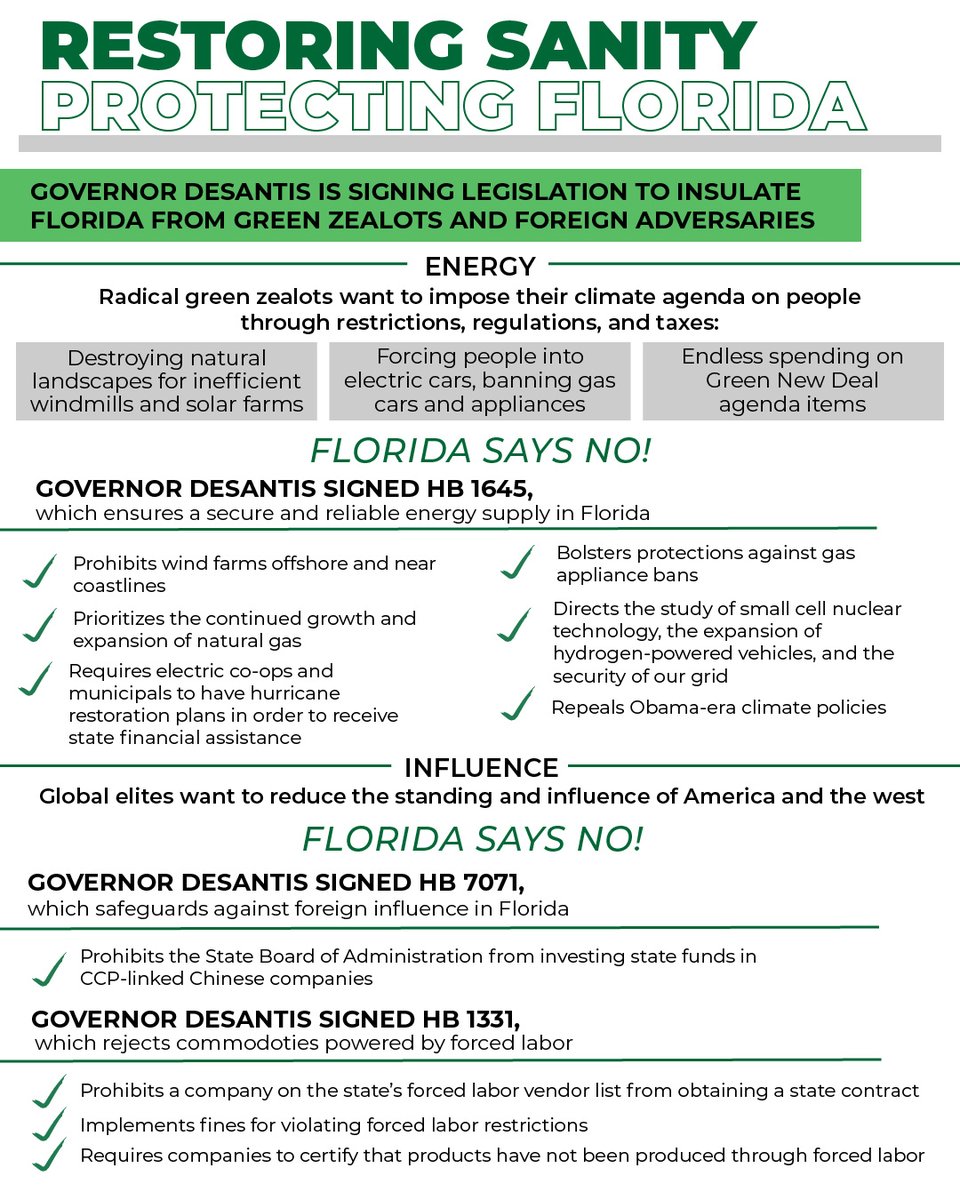The statement and accompanying image constitute public discourse as they engage in a substantive discussion about energy policy, environmental regulations, and state governance. The content is politically charged, framing the issue as a rejection of what is termed 'radical' environmental agendas by 'green zealots' and 'foreign adversaries.' The tone is assertive and oppositional, clearly positioning the state's policies as a counter to these agendas.
- The statement may indirectly harm groups by labeling them as 'zealots' and 'radical,' which could polarize public opinion and diminish productive dialogue. [-1]Principle 1:I will strive to do no harm with my words and actions.
- The statement respects the dignity of others to a limited extent. It does not engage in personal attacks but uses charged language that could be seen as disrespectful to those with opposing views.Principle 2:I will respect the privacy and dignity of others and will not engage in cyberbullying, harassment, or hate speech.
- The statement uses divisive language which might not promote understanding or empathy among differing viewpoints. [-1]Principle 3:I will use my words and actions to promote understanding, empathy, and compassion.
- The statement engages in a form of dialogue by stating a clear position on public policies. However, the use of charged language might limit constructive criticism or open dialogue.Principle 4:I will engage in constructive criticism and dialogue with those in disagreement and will not engage in personal attacks or ad hominem arguments.
- The statement does not acknowledge counterpoints or the complexity of the issues at hand, which could be seen as a failure to correct or acknowledge broader perspectives. [-1]Principle 5:I will acknowledge and correct my mistakes.
- The statement uses its platform to assert a political stance and influence public opinion on state policies, aligning with the principle of using influence for what it perceives as the betterment of society within the context of state interests. [+1]Principle 6:I will use my influence for the betterment of society.
